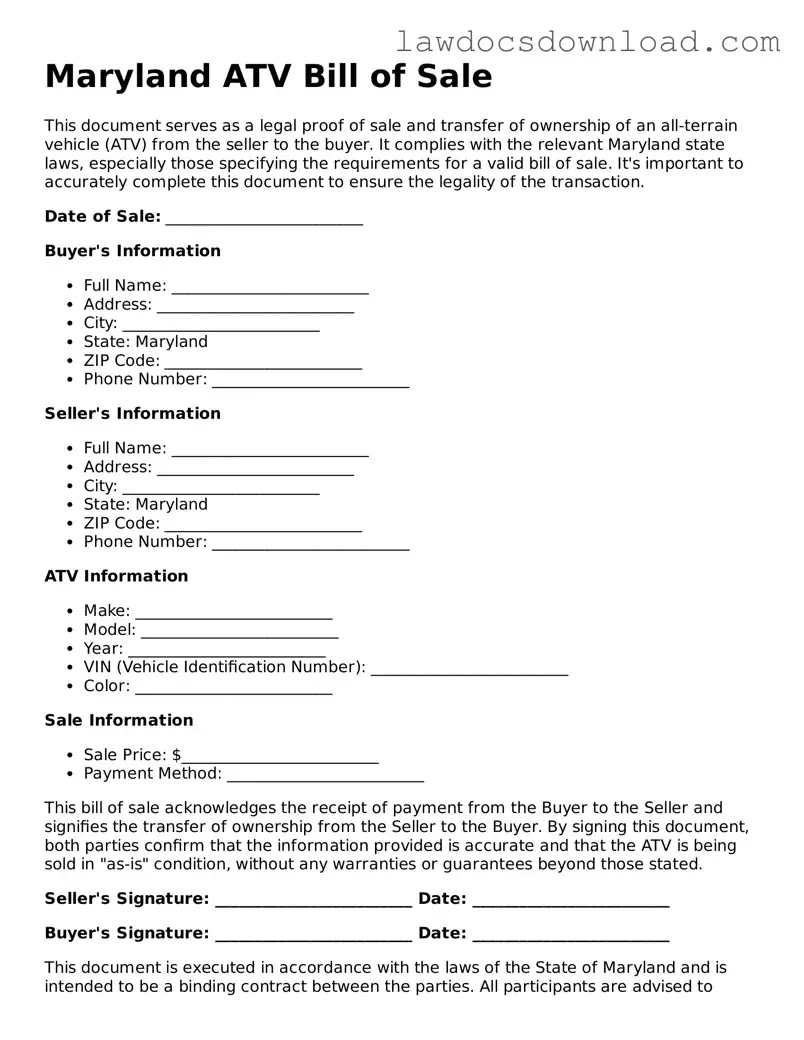The Vehicle Bill of Sale is similar to the Maryland ATV Bill of Sale in that it acts as a legal document transferring ownership of a vehicle from seller to buyer. This document typically includes information about the vehicle, such as make, model, and VIN (Vehicle Identification Number), as well as the purchase price and the parties' signatures. Just like with ATVs, a Vehicle Bill of Sale serves as proof of purchase and can be required for registration purposes in various jurisdictions.
Another document similar to the Maryland ATV Bill of Sale is the Boat Bill of Sale. This document formalizes the sale of a boat from one party to another, detailing the boat's description (including hull identification number and length), the sale price, and the terms of the transaction. Both this and the ATV Bill of Sale might also include specific details about any warranties or "as-is" status, establishing the buyer's understanding of the condition of the item being purchased.
The Firearms Bill of Sale shares similarities with the Maryland ATV Bill of Sale as well, serving as a record of the sale and transfer of ownership of a firearm from one individual to another. This document typically includes detailed information about the firearm, the buyer, and the seller, alongside signatures to validate the transaction. It often contains clauses that assert the buyer is legally allowed to own a firearm, mirroring the necessity for proper documentation and legal compliance found in the ATV Bill of Sale.
A General Bill of Sale is a broader document that, like the Maryland ATV Bill of Sale, records the sale of various items beyond vehicles, boats, or firearms. This document captures the transaction details between a seller and a buyer for items like electronics, furniture, and other personal property. It includes information on the item sold, the sale amount, and both parties' signatures, providing a legal record that proves ownership and transaction details.
Finally, the Pet Bill of Sale is akin to the Maryland ATV Bill of Sale in that it documents the sale and transfer of ownership of a pet, usually from a breeder or previous owner to the new owner. It includes specific details about the pet, such as breed, date of birth, health guarantee, and any other relevant information. Like the ATV Bill of Sale, this document serves to protect both parties by detailing the terms of the sale, including any return policy or health check requirements.

